Sherlock Holmes has taken many forms over the centuries, none more compelling and engaging than in this eye-popper.
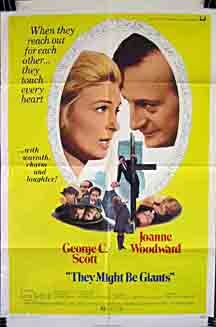
George C. Scott, at the height of his considerable powers, is Justin Playfair who had been an attorney of note and then a judge of discerning insight, striving always for justice in large and in small things. Striving always and never yielding, but the years passed and world seemed no more just and then his wife died. Lost of her compass, Justin shut himself away in the family mansion, for Justin has many dollars, and became….a reborn Sherlock Holmes, complete with period costume, laboratory, and (a poor) Brit accent. He secrets himself away in the house for months at a time in a waiting game with Professor Moriarty, who else, the nemesis.
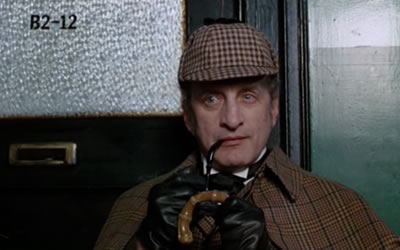
Justin’s brother needs money and a lot of it soon to pay off a mobster, and sets in motion the wheels to have Justin committed to a mental asylum so that he, the brother, can take control of the dosh. He finds a compliant doctor who will sign anything for a dollar, and then needs a second expert’s signature. Enter none other than Dr Mildred Watson, played by that star of the Hollywood firmament, Joanne Woodward, a frumpy single woman with broken fingernails and an irritating manner.
Yes, Holmes has his Watson, at last! What follows is movie magic when movies still had magic.
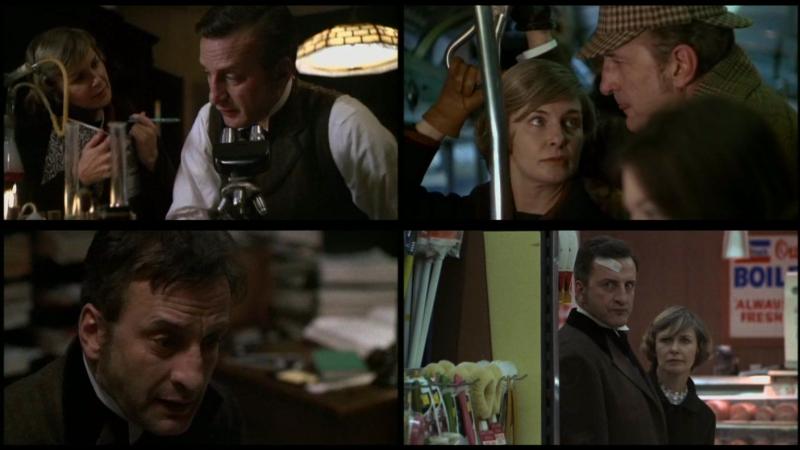
Playfair as Holmes is a force of nature and intellect (‘I never guess!’). When she introduces herself as Dr Watson, Scott’s eyes pop off the screen; even on a DVD on a small television, he is electric.
Of course, he’s nuts, she can see that, but…. well, it takes time to be sure. He meets her, he because he wants a Watson, she because she wants a diagnosis that can be published to enhance her career. Both get more.
Scott’s march down the hall of the mental hospital is a delight to behold. Force of nature, indeed! (No spoiler. But Scott was a Marine for four years and it shows.) It gets better when, with his deductive powers, he diagnosis one of Watson’s patients far better than she has been able to do, working by the book.
It turns out someone is now out to get Scott, to settle the wayward brother’s debts, and the game is afoot.
The search for clues leads to a telephone exchange where a scene with a caller and an operator stayed in my mind for near fifty years. That is some credit to all the players, writers, and directors. When the operator turned, I knew what to expect. It was silent comment on enslavement of us all to the machine that is society, which Michel Foucault would recognize.
There is much more, but best of all is a scene and speech. which over the ensuing many years I have sometimes quoted and often recalled.
Seeking respite from the pursuing villains, Scott takes Watson to a theatre, an old broken down movie house; as they climb the stairs, she, querulous, asks ‘Why here?’ ‘Why … because they only show westerns here,’ says Scott as though naming the self-evident.
‘Huh!‘ is the learned doctor’s reply. Patiently, as to a slow-witted child, he explains why westerns are the ultimate expression of morality. It goes something like this: ‘If you look closely at Westerns you can see principles, the possibility of justice; you can see individuals who move their own lives, bringing them to the ends they deserve.’ There are no masses, no bureaucracies, no excuses. (Bring on Randolph Scott! I cried.)
There are false notes to be sure. Jack Gilford is wasted. The episode with the garden elves is pointless. The scenes of sidling are silly and without purpose. The plot is full of holes. If it is blackmail, no one seems to care. The march of acolytes at the end is fun but pointless, and the final descent in the end still seems…. confusing., incomplete, a let down. Writers sometimes just cannot figure out what to do at the end, maybe because they do not want it to end. I know, in this case, I did not either. A great trip with no arrival like ‘L’année dernière à Marienbad’ (1961).
It is a tribute to many hands that Joanne Woodward, that belle from Georgia by way of LSU in Baton Rouge, could be turned into this dowdy woman, she who melted the screen fours years later in ‘The Drowning Pool’ with that molasses accent and honey blond beauty. Here she looks exhausted and cranky or cranky and exhausted with a big city accent, and shambles around like a lame department store window mannequin. She has many other credits, of course, and I mention a few for the sheer pleasure of calling them to mind: ‘The Long Hot Summer’ (1958), ‘The Sound and the Fury’ (1959), ‘The Fugitive Kind’ (1960), ‘Paris Blues’ (1961), ‘A Fine Madness’ (1966), ‘Rachel, Rachel’ (1968), ‘Winning’ (1969), ‘The Effect of Gamma Rays’ (1972), the list goes on.
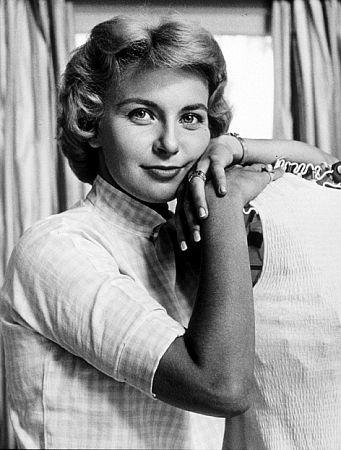

Scott, he too from the South — Virginia, was never better, and that is high praise. Among his remarkable performances was the prosecuting attorney in ‘Anatomy of a Murder’ (1959) who was so smart that he outsmarted himself, ‘The Hustler” (1961) as an avaricious agent, one of many crazed generals in ‘Dr Strangelove’ (1964), before taking the world by storm in ‘Patton’ (1970). He also did a noteworthy television series ‘East Side, West Side’ (1963-1964) as a social worker in the bowels of New York City. He had the reputation for professional intensity that sometimes put off other actors. Once he was in-character, he stayed there for the duration. Though not trained as a method actor, he out-methoded most of them.
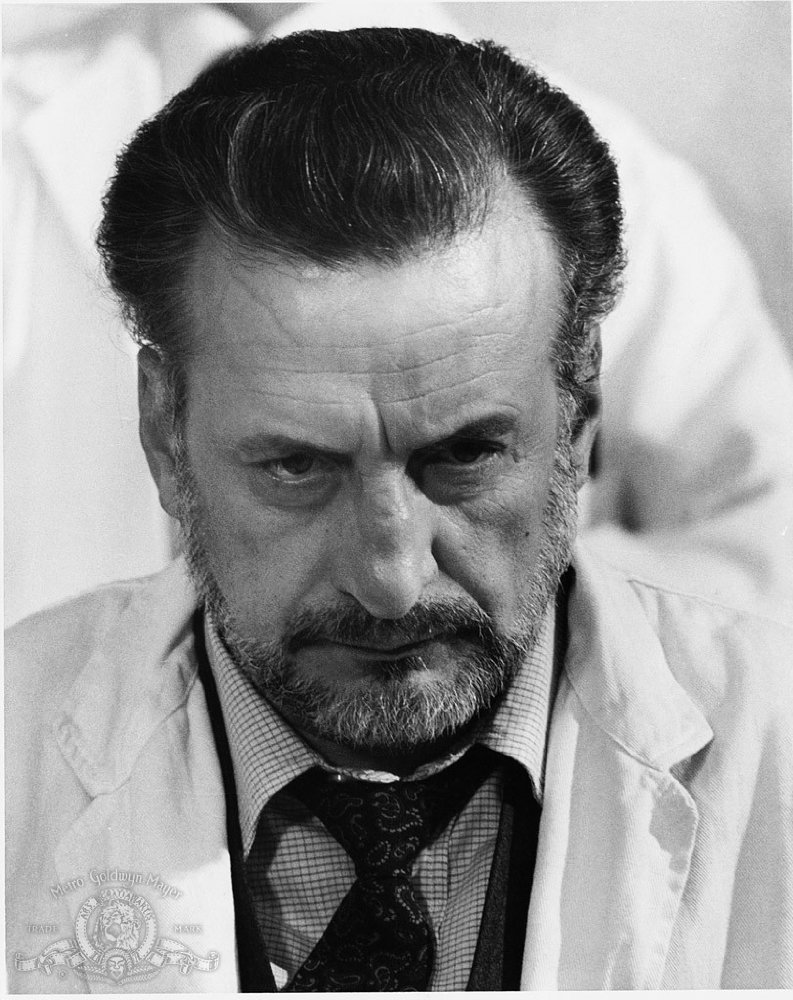 That intensity shows in another role.
That intensity shows in another role.
The IMDB entry is sketchy with only first names for the characters, and not all of them. It has a rating of 7.0 which is respectable but not high enough.
I saw ‘They Might be Giants’ on the wide screen in Edmonton Alberta Canada when a callow graduate student and a night at the movies was a major financial commitment. It was memorable and I have checked many times in the following decades to see it again. No luck. Then a few weeks ago I happened to check again and lo, there it was on the Amazon site. I ordered it and when it arrived, I ripped it open and watched it, a rare treat that has withstood the test of time.
Skip to content
